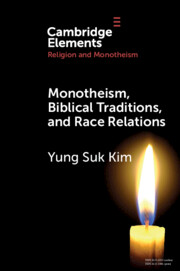- διὰ πίστεως Ἰησοῦ Χριστοῦ (Rom 3:22): through Jesus Christ's faith
- ἐκ πίστεως Ἰησοῦ (Rom 3:26): from Jesus's faith
- διὰ πίστεως Χριστοῦ Ἰησοῦ (Gal 2:16): through Christ Jesus's faith
- ἐν πίστει ζῶ τῇ τοῦ Υἱοῦ τοῦ Θεοῦ (Gal 2:20): I will live by (in) the faith of the Son of God
- ἐκ πίστεως Ἰησοῦ Χριστοῦ (Gal 3:22): from Jesus Christ's faithfulness
*If Paul meant "faith in Jesus," he would have used the prepositional phrase: pistis en christo, which is found in the Deutero-Pauline and Pastoral letters: Col 1:4; 1 Tim 1:4; 3:13; 2 Tim 1:13; 3:15.





